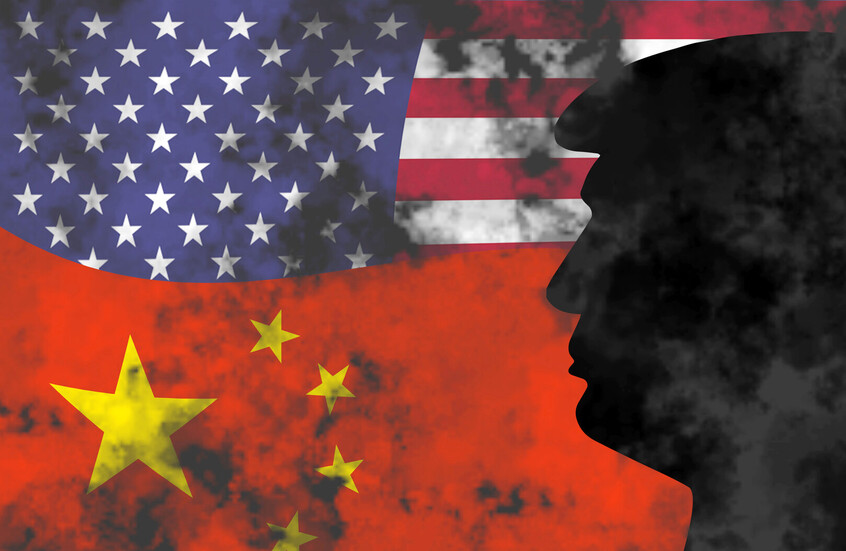
Washington - Saba:
The United States has imposed port duties on ships manufactured in China, to be implemented in October and gradually increase over the next three years.
This came in a decree published by the US Trade Representative on Thursday.
U.S. trade negotiator Jamison Greer said: "Ships and shipping are vital to U.S. economic security and the free flow of trade. "The Trump administration's actions will begin to curb China's dominance, address threats to the U.S. supply chain, and send a signal of demand for U.S.-manufactured ships.
The decree emphasized that the new duties are being imposed based on Section 301 of the Trade Act of 1974, which gives the President of the United States the authority to take all measures necessary to counter what the United States considers to be existing restrictions on national commerce by other countries.
For ships manufactured in China and owned by companies from other countries, the duty will be charged per registered net ton or per container, whichever is higher. The fee will start at $18 per registered net ton, rising by $5 per year, reaching $33 by April 2028. The container fee is an initial fee of $120 per unit, gradually increasing to $250 in 2028.
In addition, all carriers of cars manufactured outside the US will be subject to a fee of $150 per unit as of October 14.
A shipping company will be able to obtain a deferral of fees for up to three years if during this period it orders a US-made vessel with a capacity equal to or greater than the capacity of the container ship it is already using, and puts it into service.
According to Reuters, the new measures will not affect Chinese-made ships carrying goods within the United States. CNBC notes that exported goods such as coal or grain, and empty ships arriving at US ports, will also be exempt from the tax.
The second phase will begin after three years and aims to incentivize the construction of ships in the US that transport liquefied natural gas (LNG). The measures, which will take effect after three years and rise gradually over 22 years, include partial restrictions on the transportation of LNG on foreign vessels.
The United States has imposed port duties on ships manufactured in China, to be implemented in October and gradually increase over the next three years.
This came in a decree published by the US Trade Representative on Thursday.
U.S. trade negotiator Jamison Greer said: "Ships and shipping are vital to U.S. economic security and the free flow of trade. "The Trump administration's actions will begin to curb China's dominance, address threats to the U.S. supply chain, and send a signal of demand for U.S.-manufactured ships.
The decree emphasized that the new duties are being imposed based on Section 301 of the Trade Act of 1974, which gives the President of the United States the authority to take all measures necessary to counter what the United States considers to be existing restrictions on national commerce by other countries.
For ships manufactured in China and owned by companies from other countries, the duty will be charged per registered net ton or per container, whichever is higher. The fee will start at $18 per registered net ton, rising by $5 per year, reaching $33 by April 2028. The container fee is an initial fee of $120 per unit, gradually increasing to $250 in 2028.
In addition, all carriers of cars manufactured outside the US will be subject to a fee of $150 per unit as of October 14.
A shipping company will be able to obtain a deferral of fees for up to three years if during this period it orders a US-made vessel with a capacity equal to or greater than the capacity of the container ship it is already using, and puts it into service.
According to Reuters, the new measures will not affect Chinese-made ships carrying goods within the United States. CNBC notes that exported goods such as coal or grain, and empty ships arriving at US ports, will also be exempt from the tax.
The second phase will begin after three years and aims to incentivize the construction of ships in the US that transport liquefied natural gas (LNG). The measures, which will take effect after three years and rise gradually over 22 years, include partial restrictions on the transportation of LNG on foreign vessels.